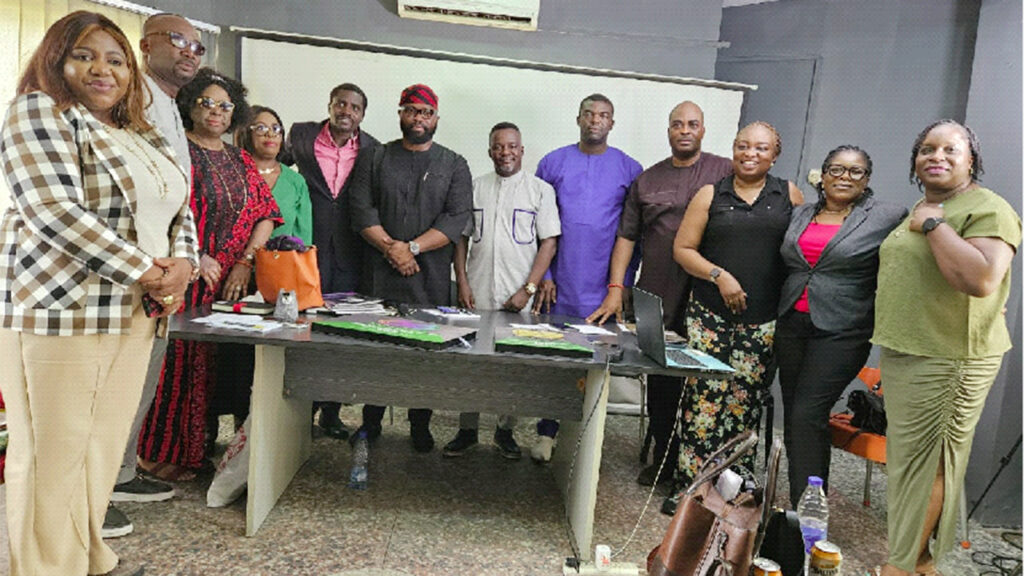
IN THE COURT OF APPEAL
IN THE LAGOS JUDICIAL DIVISION
HOLDEN AT LAGOS
ON MONDAY THE 27th DAY OF APRIL, 2015
BEFORE THEIR LORDSHIPS
JOSEPH SHAGBAOR IKYEGH JUSTICE, COURT OF APPEAL
CHINWE EUGENIA IYIZOBA JUSTICE, COURT OF APPEAL
SAMUEL CHUKWUDUMEBI OSEJI JUSTICE, COURT OF APPEAL
APPEAL NO:CA/L/843/2013
BETWEEN
SIFAX NIGERIA LIMITED
DR. TAIWO AFOLABI
MR. BABATUNDE OLANREWAJU AFOLABI APPELLANTS
OTUNBA MICHAEL OLANTUNDE OLOWU
PORTS AND CARGO HANDLING SERVICES
COMPANY LIMITED
A N D
MIGFO NIGERIA LIMITED RESPONDENTS
DENCA SERVICES LIMITED
WHERE an aggrieved person commences an action within the period prescribed by the statute and such action is subsequently struck out for one reason or the other without being heard on the merit or subjected to an outright dismissal, such action is still open to be recommenced at the instance of the Claimant and the limitation period shall not count during the pendency of the earlier Suit. In other words, computation of time during the pendency of an action shall remain frozen from the filing of the action until it is determined or abates. So held the court of Appeal sitting in Lagos in a unanimous leading judgment delivered by His Lordships, Samuel Chukwudumebi Oseji JCA, with his learned brothers, Joseph Shagbaor Ikyegh and Chinwe Eugenia Iyizoba JJCA concurring while dismissing the appeal. The parties were represented by Dr. Oladapo Olanipekun with Ademola Adesina, Adetola, Ogooluwa Ogunwumiyu and O.I Salami for the Appellant.
M.I Igbokwe(SAN) with Dr. C.O Ukattah, Mr. M.T Ajayi, Mrs C.I Ochaja and Mr. I.F Nnaemeka for the Respondents.
It was further contended that a total perusal of the statement of claim particularly paragraphs 39-49 thereof will reveal that it was the certified true copies of the incorporation documents of the 5th Appellant which the Respondents discovered contrary to the joint venture agreement, only the 1st and 3rd Appellants were made shareholders and Directors of the 5th Appellant and it was immediately after this shocking discovery that the Respondents sought for a meeting with the 1st and 4th Appellants but to no avail thus prompting the Respondents to file suit No: FHC/L/CS/664/2006. In this regard computation of time will be from 7th August, 2006 when the first suit was filed or even 20th July 2006 when the search reports were obtained up to 18th July 2012 when the instant suit was filed at the lower court.
It was further argued that the reason why the Respondent’s cause of action accrued on 20th July 2006 and not on 20th December, 2005 as wrongly contended by the Appellants is that as revealed in paragraphs 39-45 0f the pleadings the Appellants perpetrated fraud against the Respondents and concealed their right of action until the Respondents through their lawyer’s search report discovered that the 5th Appellant had been incorporated by the 1st ,3rd and 4th Appellants in breach of the joint ventures Agreement between the 1st Appellant and the Respondents. Thus by virtue of Section 58 of the limitation law of Lagos State 2003, the period of limitation cannot begin to run until the Respondents discovered the said fraud.
It was therefore submitted that the following cases cited by the appellant in support of their stance are either distinguishable or irrelevant and inapplicable to the facts and circumstance of the instant case. ADMINISTRATORS/EXECUTORS OF THE ESTATE OF ABACHA VS EKE SPIFF (2003) 1 NWLR (PT.800) 114;
It was further submitted that contrary to the assertion by the Appellants in paragraphs 4.17 to 4.19 of their brief of argument, the Supreme Court in P& CHSC LTD VS MIGFO (2013) 3 NWLR (PT. 1333) 555 did not hold that time did not stop running or that time stopped running for the purpose of the Limitation law upon the filling of a suit or filling of suit No: FHC/L/CS/664/2006 on 9th August 2006 because the issue never arose for determination in the Appeal. Rather it decided the Appeal only on the issue of jurisdictions and refused to delve into the merits of other issue raised in the Appeal.
Learned senior counsel added that it was wrong for the Appellants to contend that suit No: FHC/L/CS/664/2006 cannot be the basis for suspending the computation of time for limitation period because the entire proceedings therein was struck out by the Supreme Court for want of jurisdiction and thus a nullity and no legal consequence could come out of it and even if it had any legal effect the Respondents are precluded from filling any other on grounds of res judicata. He added that, though striking out a suit brings it to a terminal end, and the judgment based thereon ceases to have binding or persuasive effect, but such striking out does not mean that the suit or the judgment based thereon has thereby ceased to exist and moreso the Supreme Court in SKEN CONSULT VS UKEY did not decide that a suit which has been struck out has ceased to exist.
On the issue of Res Judicata, it was submitted that the Appellants who did not file any statement of defence or plead res judicata in the lower court cannot now raise it. But even if they could, the earlier suit cannot operate as res judicata because it was struck out without determining the rights of the parties vide AMUDA VS OSHOBAJA (1984) 7 SC 68 at 100; ABDULKAREEM VS INCAR (NIG) LTD (1984) 10 SC 1 at 22; ODUOLA VS COKER (1981) 5 SC 197 at 252; NWAWUBA VS ENEMUO (1988) 2 NWLR (PT. 78) 581 at 593.
It was also learned senior counsels submission that a careful examination of the reliefs claimed by the Respondents in their writ of summons and statement of claim will reveal that they are claims for declaration, specific performance of the joint venture agreement, implied or constructive trustee, conspiracy to injure and defraud and damages for same and perpetual injunction which are exempted from the operation of Section 8 of the Limitation Law and the ruling of the lower court correctly reflected the true position of the Respondents claim.
It was therefore contended that, assuming without conceding that the Respondents’ claims were founded only on simple contract and time ran during the litigation of suit No: FHC/L/CS/664/2006 due to the concealment and fraud on the part of the Appellants, this suit would still not have been statute barred on a combined reading of Section 7,8,13 and 58 of the Limitation Law.
On issue 2, learned senior counsel for the Respondents noted that the Appellants by their arguments conceded that the NPA and BFE are agents 0f the Federal Government but vested with the legal personality to sue and be sued and this indicates that the Appellants knew that NPA and BPE acted as agents of a disclosed principal, the Federal Government who owns the port and it is trite law that an agent who entered into a contract in his capacity as an agent for and on behalf of a disclosed principal cannot be sued in respect of the contract. He cited the cases of BAYERO VS MAINASARA & SONS LTD (2007) ALL FWLR (PT. 359) 1285 at 1317;
In this regard, it is not NPA or BPE that should be sued as necessary party but the Federal Government.
It was however submitted that dispute between the parties at the lower court borders on declaration of the rights of the Respondents and the 1st Appellant as in their joint Venture agreement on the bidding for and subsequent management of Terminal C; Tin Can Island Port belonging to the Federal Government and none of the reliefs claimed is challenging the concession or the lease agreement granted by or the handing over of the port to the 5th Appellant by the Federal Government through the NPA and BPE.
In support of the contention that even if the NPA and BPE ought to have been joined as necessary parties, the proceedings would not be a nullity on the ground of lack of competence or jurisdiction but the court would deal with the matter in controversy at it relates to the right of the parties because a matter shall not be defeated because of joinder or non-joinder of a party.










